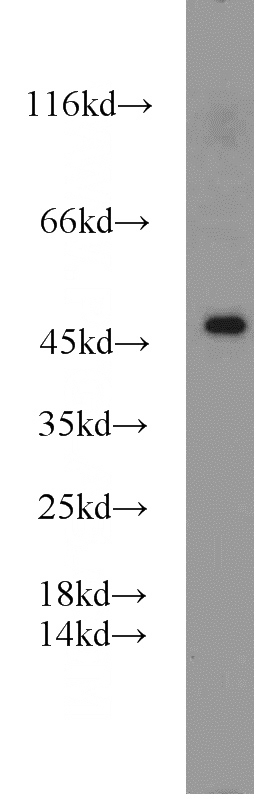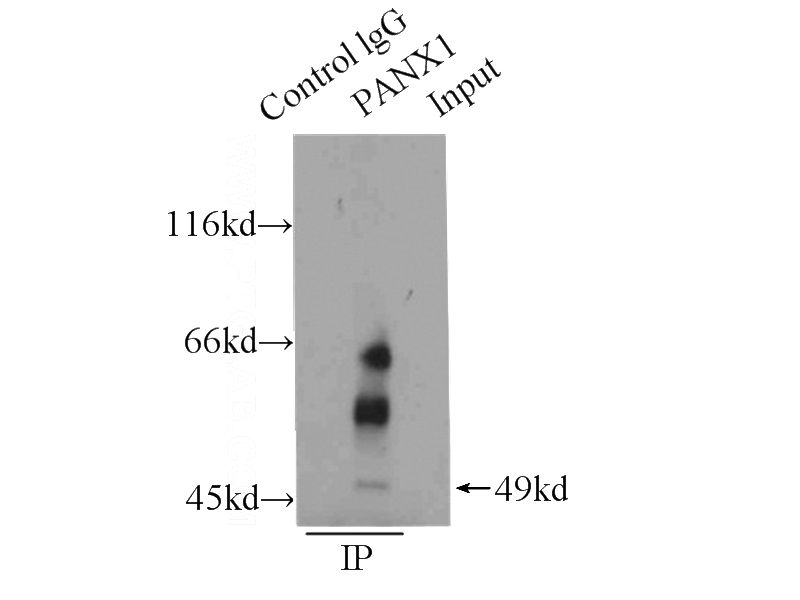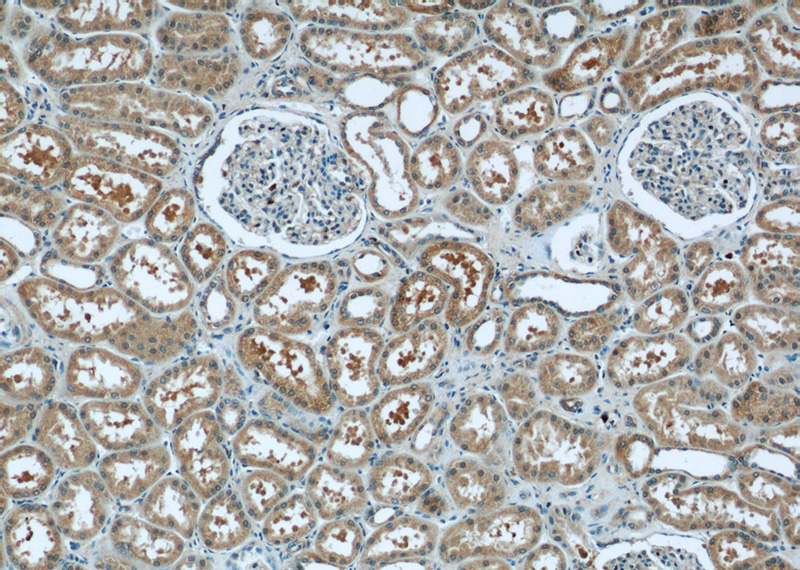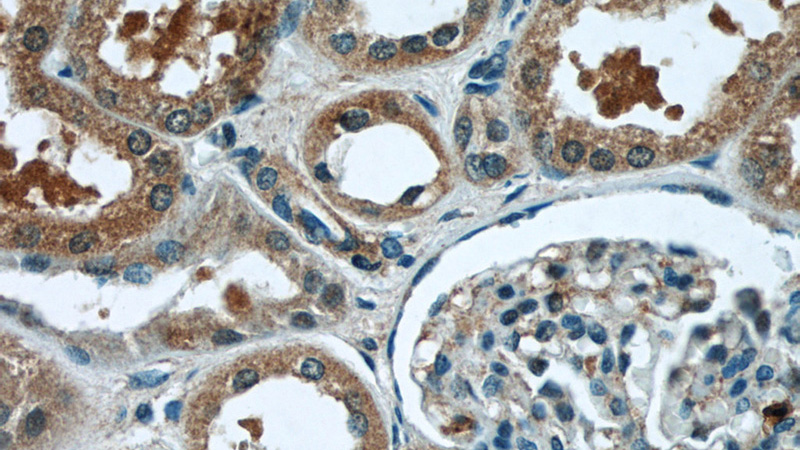-
Product Name
PANX1 antibody
- Documents
-
Description
PANX1 Rabbit Polyclonal antibody. Positive IP detected in HeLa cells. Positive WB detected in human brain tissue, HeLa cells. Positive IHC detected in human kidney tissue. Observed molecular weight by Western-blot: 48kd,98kd
-
Tested applications
ELISA, IP, IHC, WB
-
Species reactivity
Human; other species not tested.
-
Alternative names
MRS1 antibody; pannexin 1 antibody; PANX1 antibody; PX1 antibody; UNQ2529 antibody
-
Isotype
Rabbit IgG
-
Preparation
This antibody was obtained by immunization of PANX1 recombinant protein (Accession Number: NM_015368). Purification method: Antigen affinity purified.
-
Clonality
Polyclonal
-
Formulation
PBS with 0.02% sodium azide and 50% glycerol pH 7.3.
-
Storage instructions
Store at -20℃. DO NOT ALIQUOT
-
Applications
Recommended Dilution:
WB: 1:200-1:2000
IP: 1:200-1:1000
IHC: 1:20-1:200
-
Validations

human brain tissue were subjected to SDS PAGE followed by western blot with Catalog No:113573(PANX1 antibody) at dilution of 1:500

IP Result of anti-PANX1 (IP:Catalog No:113573, 3ug; Detection:Catalog No:113573 1:400) with HeLa cells lysate 2000ug.

Immunohistochemistry of paraffin-embedded human kidney tissue slide using Catalog No:113573(PANX1 Antibody) at dilution of 1:50 (under 10x lens)

Immunohistochemistry of paraffin-embedded human kidney tissue slide using Catalog No:113573(PANX1 Antibody) at dilution of 1:50 (under 40x lens)
-
Background
PANX1, also named as MRS1, belongs to the pannexin family. It plays a role as a Ca2+-leak channel to regulate ER Ca2+ homeostasis. It is a structural component of the gap junctions and the hemichannels. PANX1 induced the formation of intercellular channels with characteristics of gap junctions. PANX1 is 48-kDa protein which contains 4 transmembrane domains and cytoplasmic N and C termini. It is a mediator of find-me signal/nucleotide release from apoptotic cells.
-
References
- Kawano A, Kadomatsu R, Ono M, Kojima S, Tsukimoto M, Sakamoto H. Autocrine Regulation of UVA-Induced IL-6 Production via Release of ATP and Activation of P2Y Receptors. PloS one. 10(6):e0127919. 2015.
Related Products / Services
Please note: All products are "FOR RESEARCH USE ONLY AND ARE NOT INTENDED FOR DIAGNOSTIC OR THERAPEUTIC USE"
